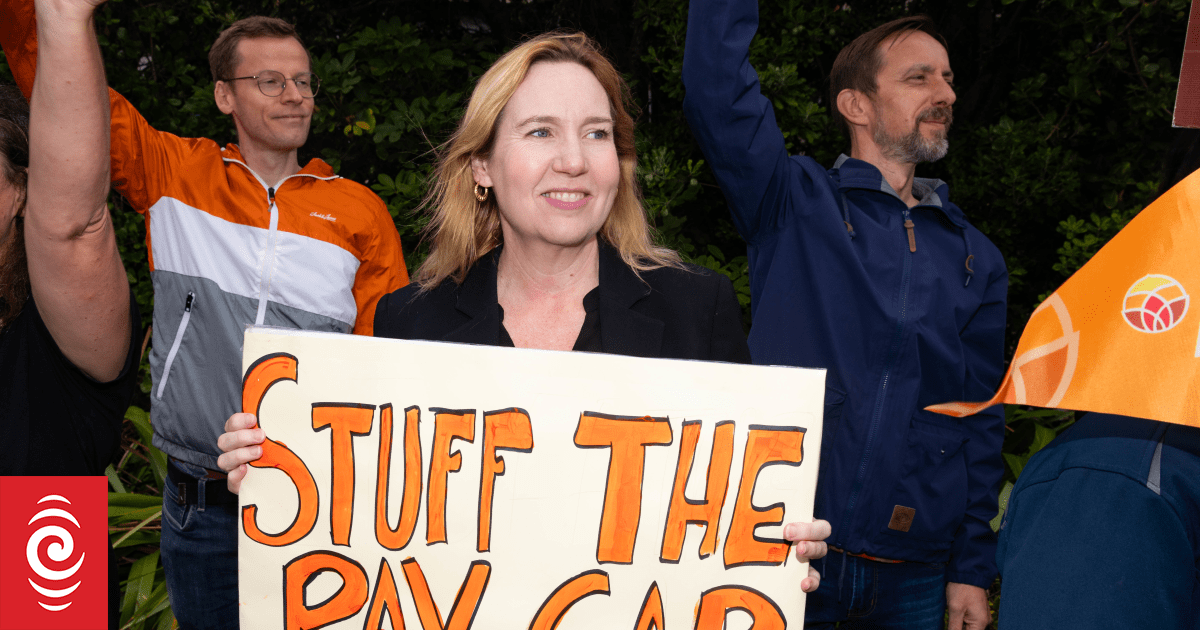PSA National Secretary Fleur Fitzsimons at a strike last year.
Photo: RNZ / Angus Dreaver
Mental health workers are the latest group to vote to strike on 23 October, the same day as previously announced strike action by primary school teachers, and allied health workers.
More than 3500 mental health and public health nurses, and mental health assistants, would strike for 24 hours from 7am in support of their claim for better pay and conditions.
The Public Service Association (PSA) said its members “voted overwhelmingly” to strike, following what it called the failure of Health NZ Te Whatu Ora to meet concerns about safe staffing levels and make a pay offer that reflected workers’ value to the health system.
PSA national secretary Fleur Fitzsimons said bargaining had been underway for the past year.
“The government must fund health services properly, so that workers have enough money to live on and can continue to help New Zealanders facing challenges,” she said.
“These nurses and mental health assistants work in some of the most demanding parts of the public health system, yet after bargaining for a year, their concerns about staffing levels and fair pay have fallen on deaf ears.”
The mental health workers joined more than 11,500 allied health workers, who would be striking from midnight, Fitzsimons said.
She warned that if workers were not properly valued, more would leave for Australia.
Community mental health nurse and PSA delegate Monique Larsen said they were reluctant to strike, but had “run out of patience” with Health NZ and the government.
“We can’t keep going the way we are now. We’re constantly trying to look after patients with absolute minimum levels of staffing – it’s not sustainable,” she said.
“Our communities’ mental and public health needs have increased significantly post Covid – the impact post-pandemic has been overlooked. We’ve seen a massive increase of drug and addiction issues putting heaps of pressure on our mental health and addictions and ED services.
“We’re really worried about the whaiora who will slip through the cracks if we don’t properly resource services now and look after our existing and future healthcare workers. At current levels, we’re putting the health of our patients at risk.”
Registered mental health nurse and PSA delegate Roy Bicknell said nurses did not take industrial action lightly.
“We have patients relying on us for help. But when Health NZ has repeatedly refused to meet us on key health and safety issues, we don’t see any other option.
“Every day I see staff battle to provide quality healthcare in unsafe working environments, with few policies or procedures to support them. We want Health NZ and the government to listen to workers and understand the real issues here and then commit to properly funding the healthcare system so we can all benefit.”
Health New Zealand has not received an official strike notification from the PSA, a spokesperson told RNZ.
“We believe the offer that has been made is fair and that bargaining is the best way to resolve outstanding issues.”
Sign up for Ngā Pitopito Kōrero, a daily newsletter curated by our editors and delivered straight to your inbox every weekday.
